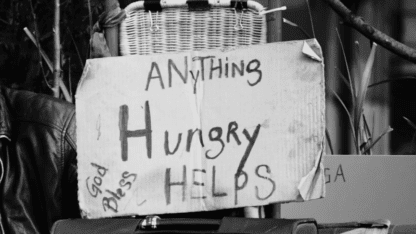Voting rights groups argue that a new Georgia law violates the National Voter Registration Act because it discriminates against people with unstable housing.
The ACLU, the Southern Poverty Law Center and the Lawyers’ Committee for Civil Rights Under Law, among others, provided written notice to Secretary of State Brad Raffensperger in a letter on Wednesday.
Senate Bill 189, which went into effect this month, created guidelines for voter challenges — when one citizen challenges another voter’s registration. The law says if a voter is found to have a nonresidential address, that would be a sufficient reason to sustain the challenge.
“This provision treats some Georgia voters differently based on their lack of access to a residential address,” the letter said.
Specifically, the groups said the law puts a disproportionate burden on unhoused voters, who may have to provide additional information to election officials in order to participate in elections. They said the National Voter Registration Act requires the impact of voter roll maintenance to be uniform.









